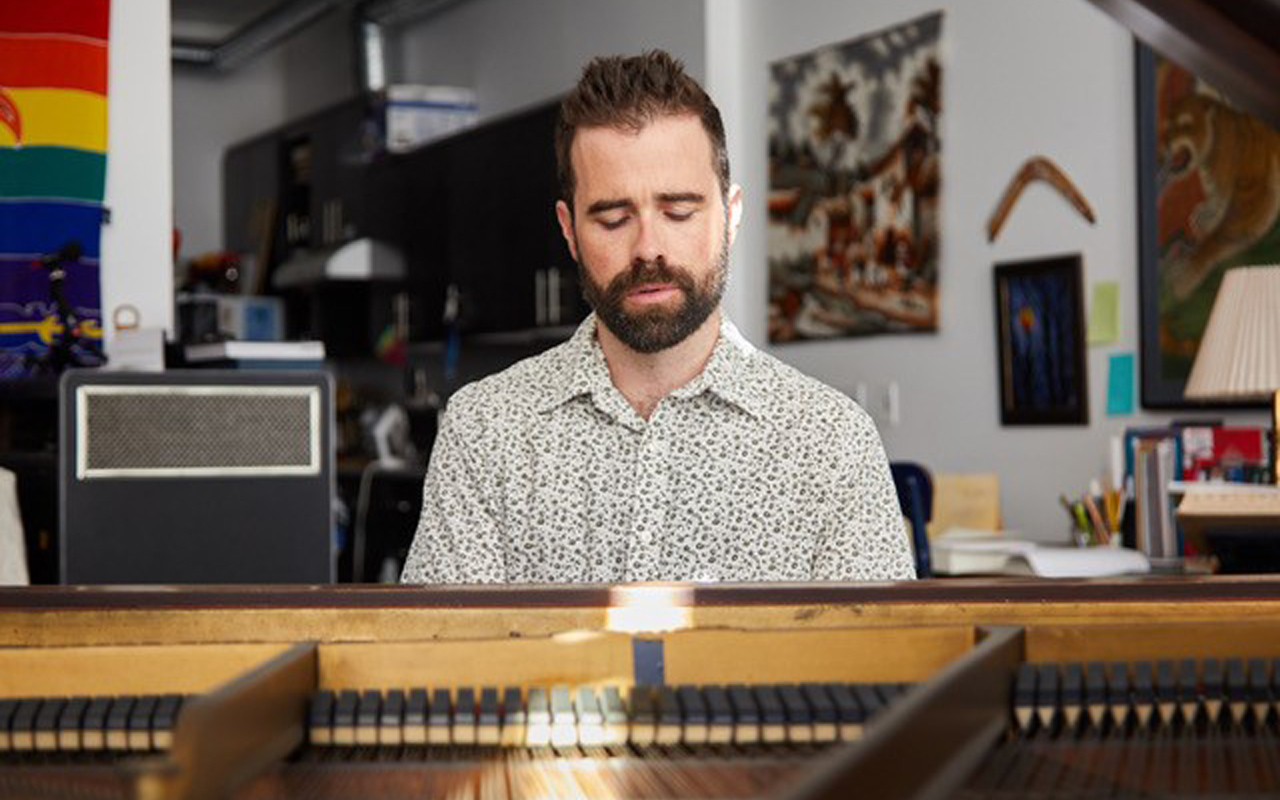
Alex Chadsey photo by Olli Tumelius.
Community Corner is a series that invites the public to contribute their thoughts, reflections, observations, and more about the world around us, particularly as it relates to jazz and music overall. Earshot Jazz is dedicated to amplifying the voices and stories of artists and community members alike. The thoughts and opinions expressed in this series are the author’s own and do not necessarily reflect those of Earshot Jazz. To submit a story, please email editor@earshot.org.
This month Seattle-based musician, composer, and teacher Alex Chadsey, well-known for his work with his ensemble Duende Libre, looks with hope to the year ahead.
BY ALEX CHADSEY
When asked if I would write a New Year-themed essay for the December issue of this magazine, at first I hesitated. In spite of progress in our fight against COVID, it’s hard to feel optimistic about the year ahead when the pandemic drags on and our lives remain circumscribed by uncertainty. But as I have done so many times throughout the pandemic, I turned to my experience with music for answers. What I learned surprised me.
Music and life are shaped by cycles. Examples abound: our days are marked by one rotation of the earth around its axis, a process which takes 24 hours. Outside my window “the autumn leaves of red and gold” mark the passage of another, larger cycle—the earth’s annual orbit around the sun—a phenomenon we experience like the changing seasons. Everywhere we look, cycles permeate and generate life as we know it.
Music wouldn’t exist without cycles. Music is fundamentally sound, and sound is vibration, which, of course, is a cycle. The particular vibrations that our ears, magical organs that they are, perceive as musical pitch are very fast. Pitch, or frequency (measured in hertz or cycles per second) is the smallest cycle in music. But slow down those fast vibrations (as the German composer Stockhausen did in his 1960 composition “Kontakte”) and eventually it becomes possible to discern a distinct succession of pulses, or beats; thus, rhythm is born.
By evoking the rhythms and cycles of the natural world, music grounds us in life itself. Through music, we are reminded that we are part of something greater. In music we find belonging.
If music has the capacity to reflect and even to embody our experience as humans, then how can we tap this capacity to help us find meaning and guidance in uncertain times? In particular, how can music help us to embrace the uncertainty of a new beginning—an act so critical for life to thrive—when our time is already dominated by uncertainty and change?
Traditional cultures from around the world have long recognized music’s unique power to give life meaning. In Ewe music from West Africa, for example, the complex interplay of polyrhythms serve a purpose by preparing participants to face the vicissitudes of life. According to prominent Ghanian scholar and musician C.K. Ladzekpo, “A cross rhythm consists of a main beat scheme (a purpose in life) and a secondary beat scheme (a perceived obstacle). Each beat scheme has a significance and function in making up the distinct cross-rhythmic texture.”
Music has the power to guide us, or at the very least, to inspire courage, humility, and joy. As 2021 draws to a close, we can turn to music to nurture these qualities and others as we face the New Year, and whatever it may bring, with open hearts.